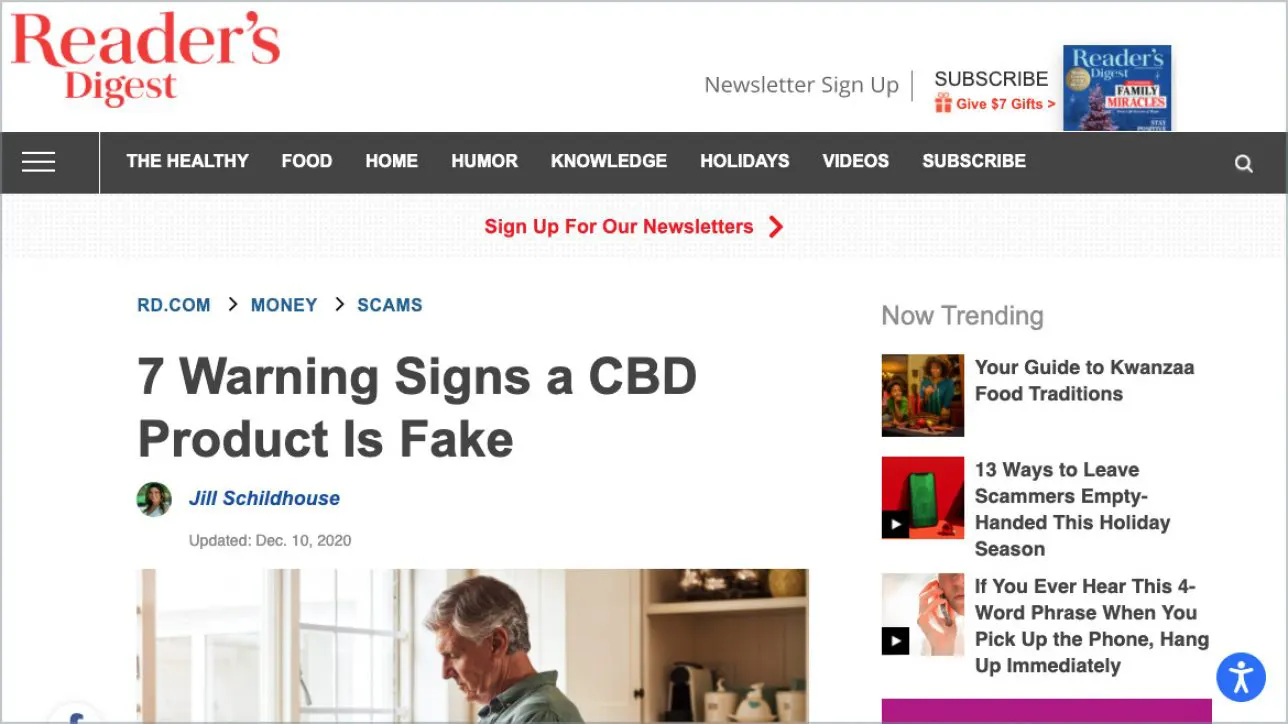Jill Schildhouse, Reader’s Digest.
An alarming number of CBD products on the market fail laboratory testing for safety and efficacy. Learn how to discern between reputable brands and imposters.
It’s the “holy grail” everyone seems to recommend for any ailment from insomnia to arthritis these days: CBD. This molecule, derived from the cannabis plant, helps support the body’s endocannabinoid system, and that system is involved with nearly every biological process, including digestion, metabolism, hormone regulation, appetite, immunity, memory, emotions, and sleep.
The cannabis industry was not spared scrutiny.
Unlike its cannabinoid cousin tetrahydrocannabinol (THC)—the compound that causes the “high” commonly associated with cannabis—CBD doesn’t result in euphoric or psychoactive effects. But what you may get from its consumption are benefits to your health and well-being. While the FDA has only approved CBD as a treatment for three conditions at present, there is a growing body of research pointing to CBD’s ability to help prevent or treat myriad diseases and health disorders in people and pets.
However, there is one concern surrounding CBD’s usage: Even though it’s legal, it’s not regulated by the FDA—much like how the FDA isn’t authorized to review dietary supplement products (vitamins and minerals) for safety and effectiveness before they are marketed. And because there are no industry standards guaranteeing a minimum level of quality, the market is saturated with imposter CBD formulations.
How prevalent are fake CBD products?
In July 2020, analytical testing laboratory SC Laboratories completed a study in conjunction with the United Cannabis Business Association (UCBA). The lab tested 17 samples purchased at unlicensed CBD shops or retailers in and around Los Angeles. The end result?
- More than 70 percent of the samples failed either for excessive…

